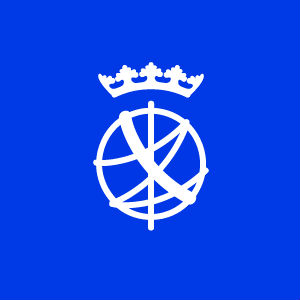
Imagine living somewhere where urban and rural life are intertwined, giving residents the best of both worlds.
To live in the Municipality of Machico is to be able to be close to nature, interact with the environment and make it an integral part of daily life. In the morning, in afternoon or at night...
To work in Machico is to work in a city that is constantly evolving. With support services that meet current needs and the largest financial platform in Portugal, rife with business opportunities.
To have non-habitual residence in Machico is to benefit from the tax advantages provided by the Portuguese state and to be part of a municipality that cares for its residents and all those who choose to live there.
To reside in Machico is to be part of the history of the Island and live among seafaring people. The sea of discovery and sea that feeds and molds the local cuisine.
To live in Machico is to have access to diverse recreational spaces, where the Marinas invite you to set sail, the golf course connects with the profound landscape, the sports parks challenge you, the beaches appeal to families and local traditions maintain the rich cultural heritage.
To breathe Machico is to feel the Laurissilva forest, enjoy the art of geology, feel the waves on a surfboard and pedal along the best tracks in the region.
Living in Machico is all this and more...
VisitMachico® has provided an online business directory that will guide you in finding the right estate agent for you.

Competitive advantages:
- For a period of 10 years, taxation related to IRS (personal income tax) on labour income in Portugal is at a fixed rate of 20%;
- No double taxation for pension incomes or for employment and self-employment income obtained abroad.
How can you acquire Non-Habitual Resident Status?
- Having not been a resident in Portugal for the last 5 years;
- Register at the local tax office as a tax resident in Portugal (to do so you must have remained in Portugal for more than 183 consecutive or non-consecutive days, or having remained for less time, having, at 31st December of that year, a home in such conditions that would lead to the assumption that it is intended to be kept and occupied as your habitual residence);
- The request for enrolment as a non-habitual resident must be made, electronically, on the Treasury Portal, after registering as a resident in Portuguese territory and until the 31st of March of the year following the year you became a resident in this territory.
Once Non-Habitual Resident Status has been obtained, what is the taxation rate and incidence applicable to domestic source income?
In the case of dependent or independent work, the applicable tax rate is 20%.
Taxation applies to income derived from high added value activities of a scientific, artistic or technical nature:
- Architects, engineers and similar technicians;
- Fine artists, actors and musicians;
- Auditors;
- Doctors and dentists;
- Teachers;
- Psychologists;
- Liberal professions, technicians and similar;
- Investors, directors and managers.
Registration as a Non-Habitual Resident confers the right to be taxed as such for a period of 10 years as from the year of registering as a tax resident in Portuguese territory.
Once Non-Habitual Resident Status has been obtained, in which cases is foreign income obtained by Non-Habitual Residents in Portugal exempt from taxation?
In the case of pensioners and retired people when:
- Income is taxed in the source State, in accordance with the convention to eliminate double taxation, signed by Portugal and that State;
- Income is not considered to have been obtained through a Portuguese source, according to the criteria provided for in the IRS Code (personal income tax).
In the case of income derived from employment, when:
- Income is taxed in the State of origin, in accordance with the convention to eliminate double taxation,signed by Portugal and that State; or
- That income is taxed in another State with which Portugal has not signed any convention to eliminate double taxation, as long as the income is not considered to have been obtained in Portuguese territory, in accordance with the criteria in article 18 of the IRS Code (personal income tax);
In the case of income from self-employment (through the provision of services of a high added value, of a scientific, artistic or technical nature, or through intellectual or industrial property, investment income, rental income, capital gains income or other increases in equity), when:
- The income may be taxed in the source country, territory or region, in accordance with the convention to eliminate double taxation ,signed by Portugal and that State; or;
- When no convention to eliminate double taxation has been signed, the OECD model convention may be applied (taking into consideration the observations and reservations made by Portugal) and as long as the source country, territory or region does not have a privileged tax regime, and as long as the income is not considered to have been obtained in Portuguese territory, in accordance with the criteria in article 18 of the IRS (personal income tax).


















